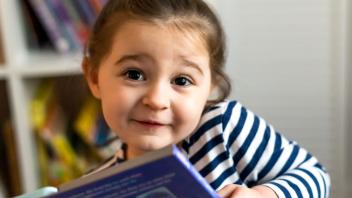I don’t remember learning to read, really, but I do remember the warmth and pleasure when my mother read aloud to us as children. I was reminded of the power of books shared early and often when I saw a Mother’s Day video done by First Book.
What is the greatest thing that adults can share with young children? How is this achieved? Certainly not by skill and drill as a recent blog by Joanne Meier suggests, but rather by supporting children’s natural curiosity about their world and igniting a passion for learning.
The program to which Joanne refers relies on repetition of a particular sort. And nothing sucks the joy out of learning quicker than an unstoppable barrage of skill and drill when there’s only one way, one right answer — almost like brainwashing.
All parents want the best for their children, but life is busy and often complicated. They feel that introducing math and reading concepts early on is a good thing — and it is, but it has to be appropriate and it’s got to be pleasurable for both the adult and the child.
Think about it: since most adults choose not to make a habit out of something that causes incredible discomfort, why would children?
Parents need help in recognizing that small things support young children’s learning a great deal. A recent project called “Where Literacy Begins” helps parents and caregivers of young children get solid ideas for children from birth to age 3 (that are readily adaptable for 3 to 6 year olds). There’s not one bit of drill in it but there are books, and lots of them.
And for young children, there’s no better way to stimulate an interest in their world while learning more about it than books.
About the Author
Reading Rockets’ children’s literature expert, Maria Salvadore, brings you into her world as she explores the best ways to use kids’ books both inside — and outside — of the classroom.

